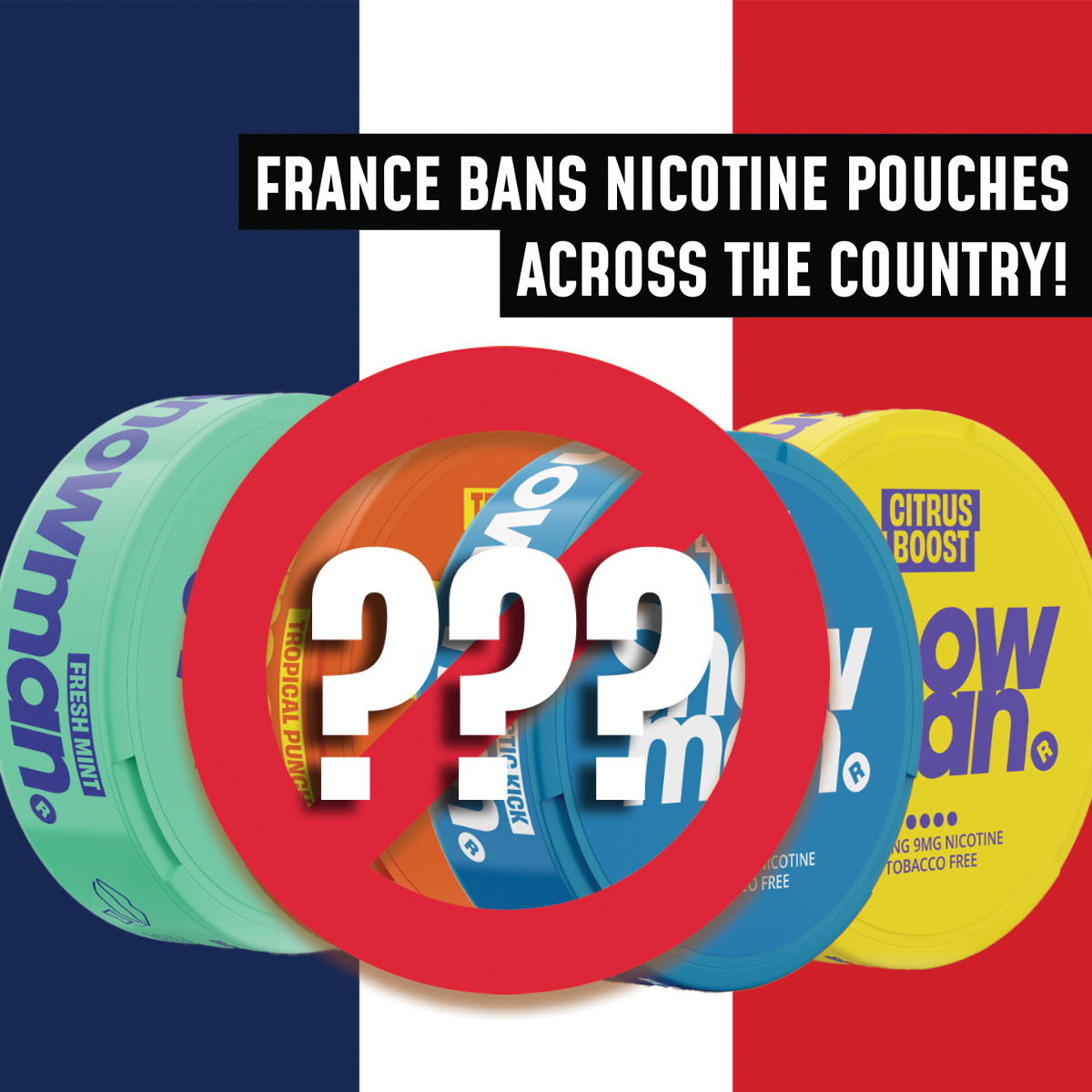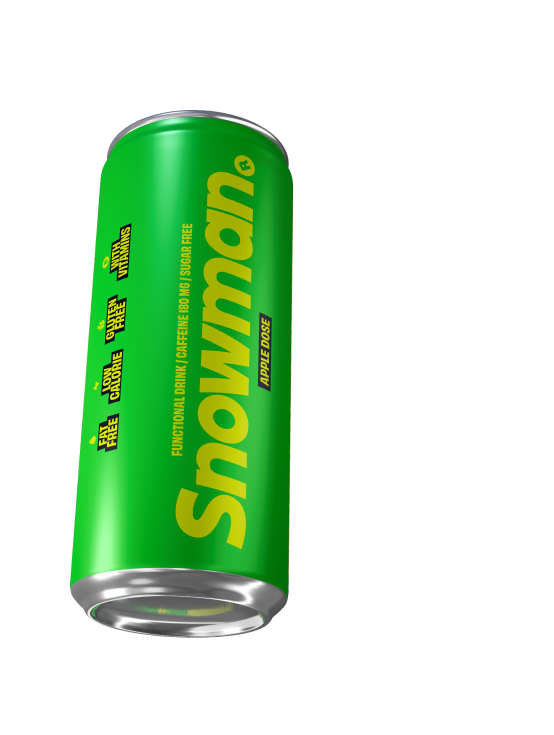
In a landmark move, France bans nicotine pouches, also the possession, use, and sale of nicotine pouches throughout the entire country. This ban applies regardless of the product’s nicotine strength, brand, or intended use.
Whether you’re a resident of France or a tourist just visiting, it is now illegal to carry, consume, or import nicotine pouches anywhere within French borders. This is not a partial restriction or a regulated product classification—it is a full prohibition. The French authorities have stated that this ban is aimed at safeguarding public health, particularly that of minors and young adults who have been increasingly drawn to these discreet nicotine delivery products. Customs officers and police have been given the authority to seize any found pouches, and businesses that sell or promote these products are required to immediately cease all such activity. The message from the government is clear: nicotine pouches are no longer tolerated in France under any circumstance.
The Reasons Behind the Ban
Several decisive factors led to the French government’s decision to impose a complete ban on nicotine pouches. First and foremost was the sharp increase in underage use, especially among teenagers who found flavored, smokeless nicotine pouches easy to conceal and socially acceptable. Unlike cigarettes or even e-cigarettes, these products do not produce vapor or smoke, making them attractive for use in schools or public areas without detection.
Health authorities raised concerns that the availability of fruity or minty flavors effectively marketed the product to youth, leading to early nicotine addiction. Additionally, regulators noted the lack of scientific consensus about the long-term health impacts of using nicotine pouches regularly. Quality control issues and inaccurate labeling regarding nicotine content were also significant concerns. Some products were found to contain far more nicotine than declared, presenting potential overdose risks. These cumulative risks pushed France to take decisive action to halt what it viewed as an emerging public health threat.
Legal Consequences for Possession and Use
Ignoring the ban on nicotine pouches in France comes with serious consequences. Possession and use are now punishable offenses, with fines starting at €135 for a first offense, and escalating sharply for repeated or large-scale violations. Distributing, selling, or attempting to import nicotine pouches—whether for profit or personal use—could lead to thousands of euros in fines and, in some cases, criminal charges. The government has emphasized that tourists are not exempt from these laws. If you are caught at a French airport or border checkpoint with nicotine pouches in your luggage, customs will confiscate the products and may issue a fine on the spot. There are no special dispensations or medical exceptions, even if the products were legally purchased in another country. These strict measures are intended to deter all use and distribution, and to avoid creating legal gray areas. Simply put: when it comes to nicotine pouches, there is no “safe” or legal way to bring them into or use them within France.
Public and Industry Reactions to the Ban
The reaction to France’s nicotine pouch ban has been intense and polarizing. Many public health advocates, educators, and parents welcomed the move, viewing it as a vital step in protecting vulnerable populations—especially teenagers—from developing long-term nicotine dependency.
On the other hand, adult users and harm-reduction advocates expressed disappointment, arguing that nicotine pouches helped them quit more dangerous habits like smoking. These users felt blindsided by the totality of the ban, as no middle ground (such as age restrictions or dosage limits) was considered. Meanwhile, the nicotine pouch industry, including manufacturers and online vendors, criticized the decision as overly reactionary. Some companies claimed they were making efforts to comply with EU regulations and promote responsible adult use. However, critics say the industry failed to prevent underage usage effectively, which may have ultimately sealed its fate in France. The policy has undoubtedly stirred up a wider debate about the balance between harm reduction, regulation, and prohibition in public health policy.
The Scientific Debate: Are Nicotine Pouches Safer or Not?
The science around nicotine pouches is still emerging, and this uncertainty has fueled debate. Supporters argue that because pouches are tobacco-free and smokeless, they may offer a safer alternative for nicotine users trying to quit smoking or avoid combustible products. Several early studies suggest that the risk of lung disease, secondhand exposure, and carcinogen intake is significantly lower compared to traditional tobacco. However, skeptics warn that the long-term effects of high-dose, oral nicotine absorption—especially when used frequently—are poorly understood. Furthermore, flavored pouches are seen as a gateway product for young users, many of whom have never smoked before. Critics argue that these users risk developing a lifelong nicotine addiction under the guise of using a “safer” product. With regulators forced to act before the science is settled, France chose a conservative approach—eliminate the product until its risks are better understood and controlled.
Economic Impact on Retailers and Consumers
The ban is also expected to have economic repercussions, especially for small businesses and specialty retailers who depended on nicotine pouch sales. Vape shops, online stores, and convenience stores across France must now remove all stock from their shelves and websites. Inventory losses and reduced foot traffic will hurt their bottom lines. Some online sellers who marketed to French customers internationally may also face legal action or be blocked from French markets. For consumers, particularly those who had switched from cigarettes to pouches as part of a harm-reduction strategy, the ban eliminates an important alternative. This may drive some users back to smoking or toward unregulated black-market sources, which could be far more dangerous. Economists and addiction experts alike warn that bans must be paired with support systems like nicotine replacement therapy, counseling, and education to prevent unintended consequences.
Cross-Border Smuggling and Enforcement Challenges
Because France is located in the heart of Europe, where regulations vary greatly between countries, enforcing the ban will be an ongoing challenge. Neighboring nations such as Germany, Spain, and Italy have more lenient or unclear policies regarding nicotine pouches, making cross-border purchases a real concern. French authorities are preparing to increase customs checks at major border crossings and transport hubs to prevent smuggling. Online purchases from foreign websites will also be monitored and subject to penalties. French consumers should be aware that ordering from abroad does not exempt them from the law—penalties apply regardless of where the product was purchased. The French government is also encouraging international cooperation with EU customs and health agencies to create a unified response to cross-border tobacco and nicotine product control.
What Alternatives Remain for Nicotine Users in France?
With nicotine pouches now off the table, what choices remain for nicotine users in France who want a safer alternative to smoking? The most common options still legally available include nicotine patches, gums, lozenges, inhalers, and in some areas, e-cigarettes—though the latter also face increasing scrutiny.
These pharmaceutical nicotine replacement products are available over-the-counter at pharmacies and are considered clinically approved tools to quit smoking. However, some users report that they find them less satisfying or harder to integrate into their routine than pouches. This highlights the ongoing need for personalized cessation programs and support systems, such as addiction counseling or behavioral therapy. Health experts stress that a successful harm-reduction policy must offer practical, acceptable alternatives, not just restrict access to products. Otherwise, bans risk backfiring by pushing users toward more dangerous or illegal sources.
Countries That Have Banned or Are Considering Banning Nicotine Pouches
France is not alone in its approach. Other countries have also chosen to ban or heavily regulate nicotine pouches. For example, Belgium and Japan have enacted full bans on the product, citing similar public health concerns. Australia classifies them as prescription-only nicotine products, effectively banning their general use. Within the European Union, Sweden is a notable exception—there, a similar product known as “snus” is legal and widely used, seen by some as a cultural staple and a harm-reduction tool. Germany, the Netherlands, and Ireland are reportedly reviewing their stance, considering possible bans or stricter controls as youth usage rates increase. In North America, Canada and the United States have not yet banned nicotine pouches, but they face growing pressure from public health groups and consumer watchdogs. The global trend suggests that we may see more countries follow France’s lead, especially as new health data emerges and public concern rises.
Snowman’s Commitment to Safe Nicotine Use
At Snowman, we recognize that nicotine has been used by humans for thousands of years, and it’s unrealistic to expect that demand for it will simply disappear. What matters is how it is used—and how safely. That’s why we are committed to offering nicotine products that meet the highest standards of safety, quality, and transparency. We rigorously test every product batch, clearly label nicotine content, and avoid marketing to underage users or creating products that might appeal to children. We believe that adults who choose to use nicotine should have access to regulated, responsibly designed options that minimize risk. As global regulations evolve, we at Snowman are committed to staying ahead of the curve—adapting our offerings, improving our formulas, and always putting your health and safety first. Whether you’re trying to quit smoking or simply seeking a cleaner alternative, we’re here to support your journey responsibly.
What Happens Next? Whether this regulatory stance is here to stay or just a stepping stone toward future adjustments remains unclear. With shifting political priorities, emerging scientific data, and growing international debate, it’s difficult to predict whether France’s strict position will hold firm—or soften over time. For now, all signs point to prohibition, but the landscape could change quickly. Snowman will keep a close eye on developments and keep you informed if—and when—anything changes.








